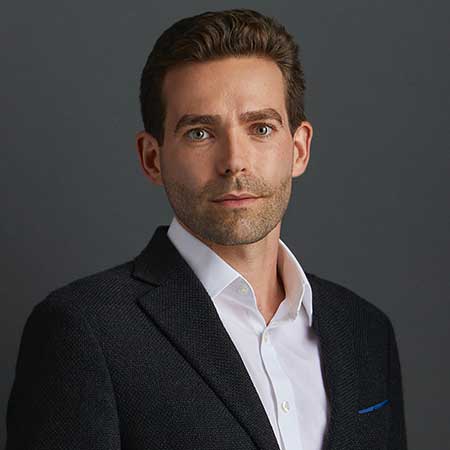Oliver Keown, MD, Oath Surgical
1) Tell us about your background and how/why you started the company.
I trained as a physician in the UK’s NHS, which taught me early that healthcare doesn’t have to be expensive to be good—but it does have to be efficient and focused on outcomes. Over time, I found myself more drawn to systems-level problems, which led me to work as a policy advisor then in venture at GE and later at Intuitive Surgical, where I founded and ran their $250M venture arm focused on accelerating the future of surgery.
That’s where the idea for Oath really started to take shape. I kept seeing the same problem: surgery is the biggest cost center in healthcare, but no one was building infrastructure to unlock the opportunity of value based care You had software startups focused on point solutions , and legacy healthcare system players just rolling up surgeons and outpatient surgical services to defend market positions, but not to move the needle on truly better care. At the same time incredible advances in minimally invasive technology and robotics is enabling more and more complex care to happen safely and with better outcomes. Despite all these trends, no one was tackling the hard stuff—like access, fragmentation, and incentives. So we decided to build it ourselves. Oath is an entirely new operating system for surgery, designed around what patients, surgeons, and payors actually need.
2) What are the key problems you’re solving—and how are you using software and AI to make a difference?
Surgery today is messy, expensive, and poorly aligned. Legacy systems are bloated and focused on financial margins, not on quality. And most outpatient care lacks the tools or tech to keep up.
We’re changing that by putting surgeons at the center of our model and wrapping software and transformative partnerships around the entire surgical experience. Our AI tools make it easier to get patients in the door, reduce admin time for surgeons, and ultimately increase the number of safe, complex procedures we can do in our centers. That’s how we deliver better care at lower cost for patients and our payor partners.
What’s different about our approach to AI is that it’s not a bolt-on—it’s embedded across everything we do. The broader industry is still stuck trying to sell point solutions into hospitals—one AI tool for billing, one for notes, another for scheduling. Our AI is working in the background to make the experience smoother and more efficient for everyone involved. It’s often invisible, but it’s powerful and it’s connected. And because we control the care setting and the software, we can actually implement and scale AI in a meaningful way. That’s a huge advantage with compounding returns for our patients, providers and partners.
3) What have you enjoyed or looked forward to about working with Tau Ventures?
Tau has been a fantastic partner. They’ve challenged us in all the right ways, especially around how to scale thoughtfully, build defensible AI, and think long-term about product-led growth. They understand that in healthcare, success isn’t just about having great tech—it’s about integrating it in a way that actually changes outcomes.
I’ve also appreciated their community and reach. We’re just getting started, but I’m excited for what’s ahead.


